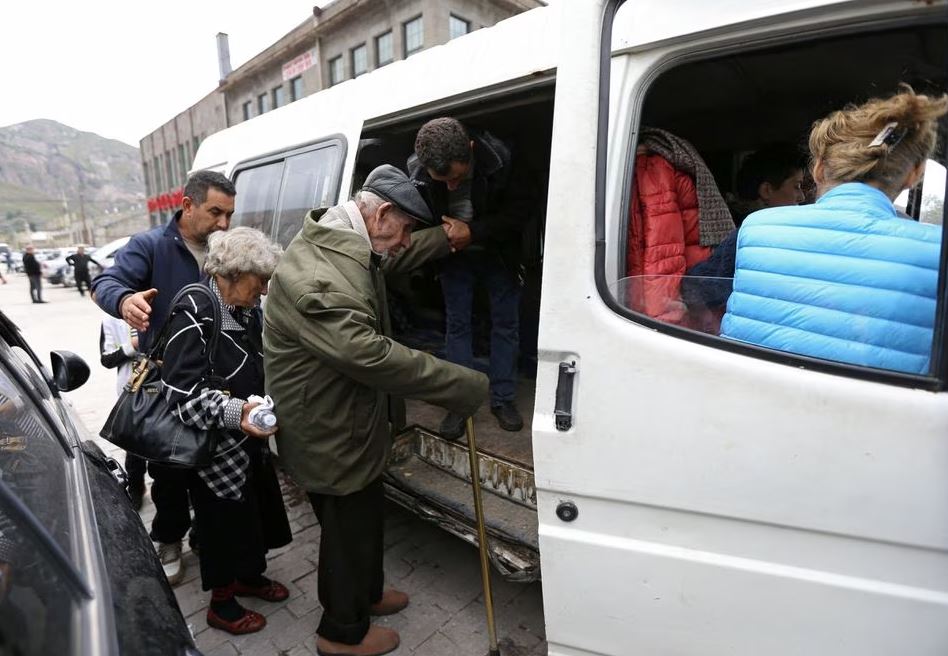The Armenian government said that about 47,000 “forcibly displaced” people have moved from the long-troubled region to Armenia.
Azerbaijan launched a military offensive on September 19. A day later, separatist authorities said they were forced to lay down their arms and agreed to a Russia-brokered ceasefire.
Nagorno-Karabakh’s ethnic Armenians announced at least 200 people died in the fighting, including 10 civilians. Azerbaijan’s Ministry of Defence released on Wednesday a list with the names of more than 150 Azerbaijani servicemen who it said died in the military operation.
“It shows the scale of the operation that was carried out,” said Al Jazeera’s Osama Bin Javaid, reporting from Shusha, known as Shushi to Armenians, in Karabakh.
“We spoke with some people in the Azerbaijani government who said that the advance weapons they saw, and their number, came as a surprise to them as they thought that a disarmament process had already begun in 2020, but it was not the case.
“They [Azerbaijani officials] say it was important to carry out this operation to make sure that Azerbaijani soil is free of any Armenian serviceman, military personnel or weapon that can be used against Azerbaijan,” Bin Javaid added.
While Azeri President Ilham Aliyev promised to guarantee the rights and security of ethnic Armenians, decades of distrust, wars, mutual hatred and violence have left many residents of Nagorno-Karabakh sceptical over the possibility of the region’s peaceful reintegration into Azerbaijani territory.
In recent days, long queues of cars have formed on the road linking the region to Armenia.
Adding to a sense of uncertainty and fear, an explosion at a petrol station near the region’s capital, Stepanakert, where people were queueing to fuel their cars before leaving for Armenia, killed at least 68 people on Monday night, according to Nagorno-Karabakh’s human rights ombudsman Gegham Stepanyan. Another 290 people were wounded, and 105 were considered missing as of Tuesday evening, he said.
Patients are receiving treatment while the process of evacuating the injured continues, the ministry said. But a nearly 10-month blockade imposed by Azerbaijan on the enclave has made medical assistance efforts more difficult due to a long-running shortage of basic goods, from bread to medicine. In December last year, Baku blocked the Lachin corridor, the only road connecting the Karabakh region to Armenia.
Visiting Kornidzor, a town on the Armenian border, USAID’s chief Samantha Power announced more than $11.5m in humanitarian assistance “to address displacement from Nagorno-Karabakh”.
The separatist enclave is internationally recognised as part of Azerbaijan, including by Armenia, but has been populated by a majority of ethnic Armenians who have sought to unify with Yerevan following the collapse of the Soviet Union.
After Azerbaijan and Armenia announced independence in the nineties, Nagorno-Karabakh was at the centre of two wars. Armenians had full control of the territory, and several districts surrounding it in 1994. But Azerbaijan regained control of much of the lost territory in 2020. Both wars caused tens of thousands of civilian casualties, and tens of thousands of internally displaced people and refugees on both sides.
Questions loom now on what will happen in the enclave as two rounds of negotiations on the “reintegration” of Nagorno-Karabakh and its ethnic Armenian population have led to no concrete results.
